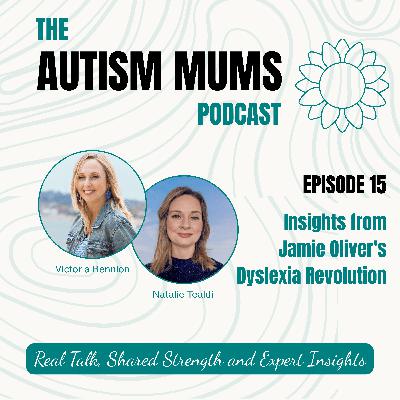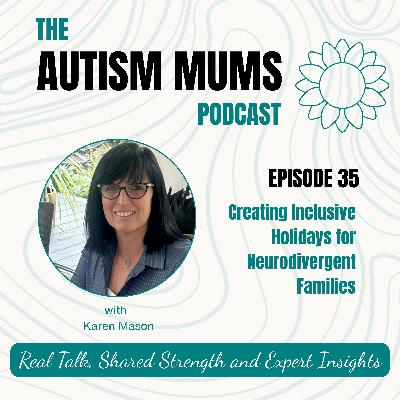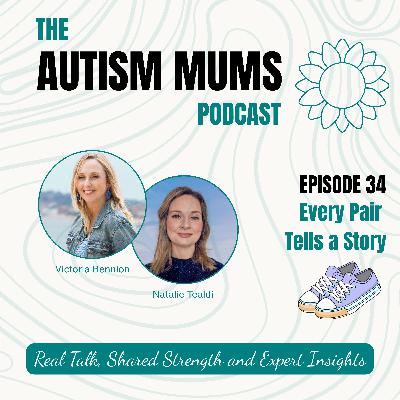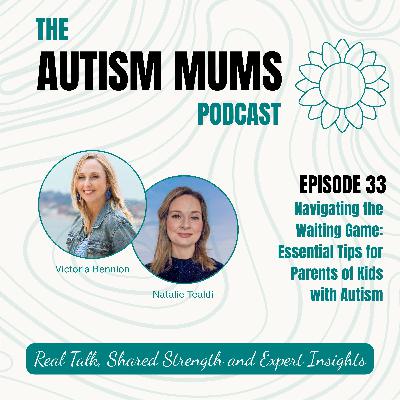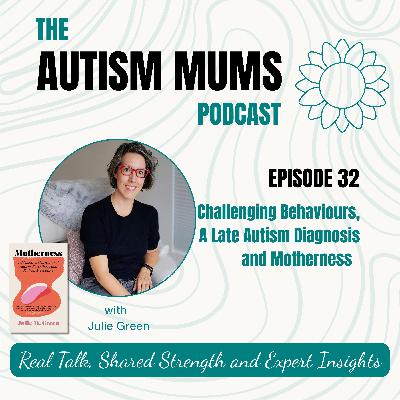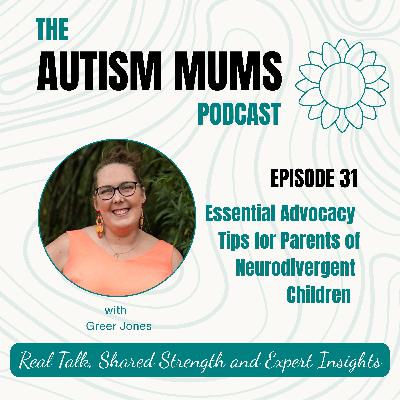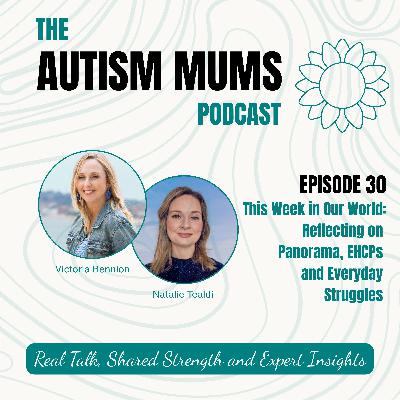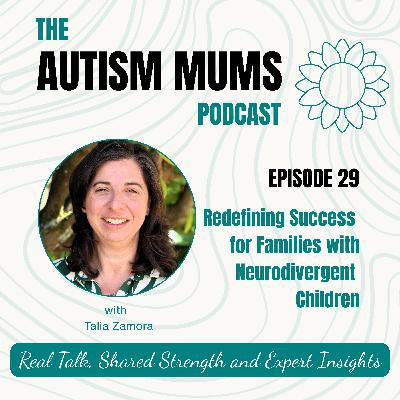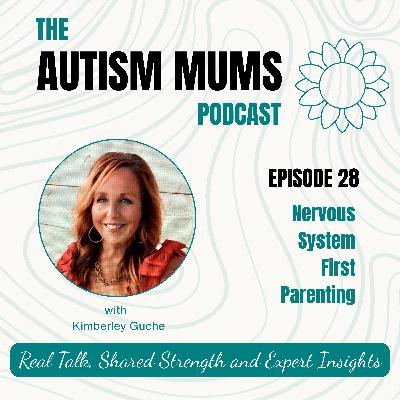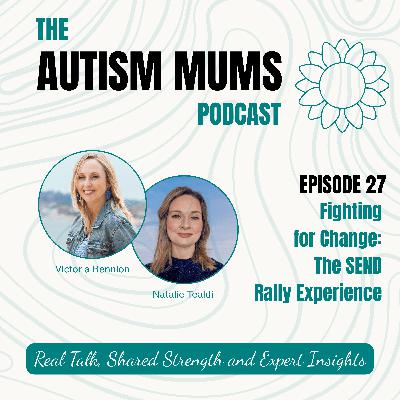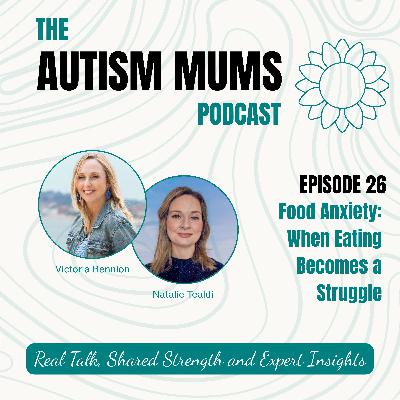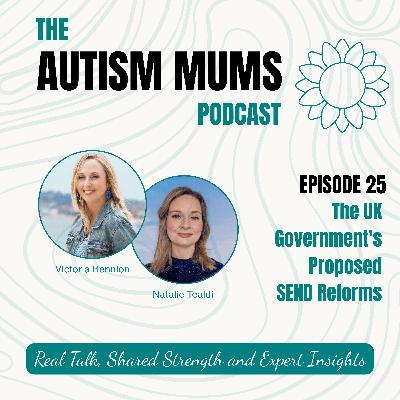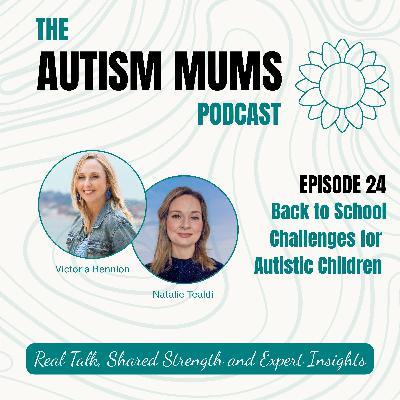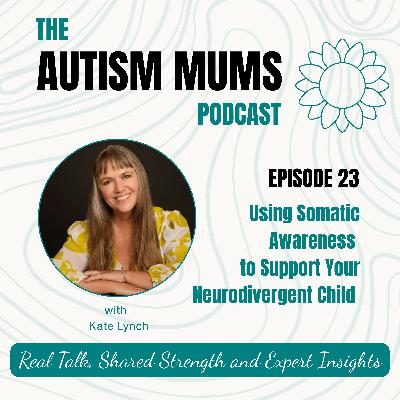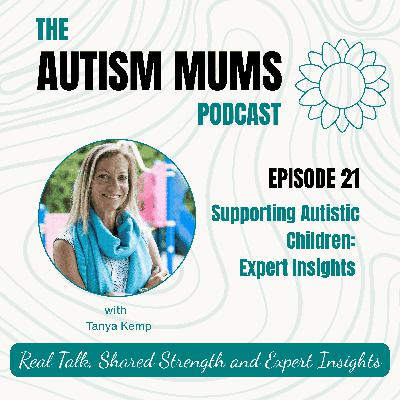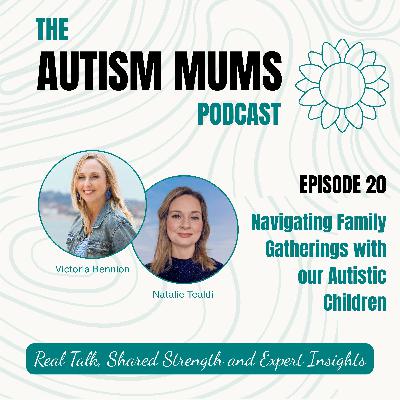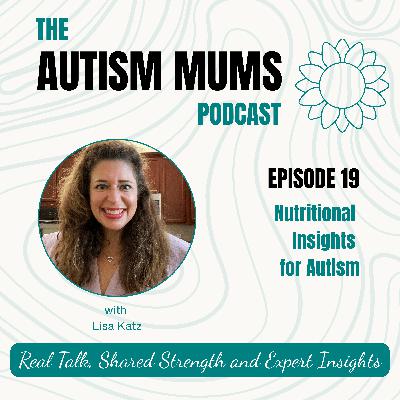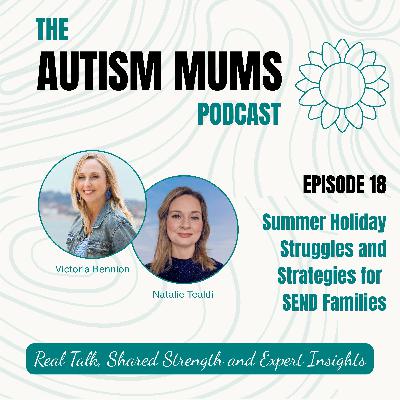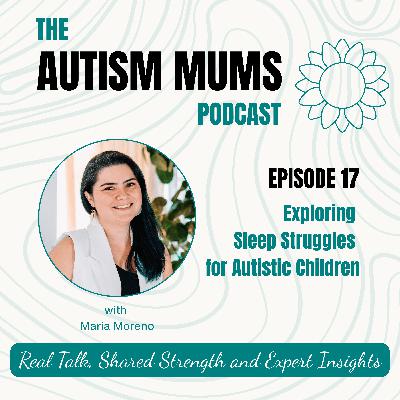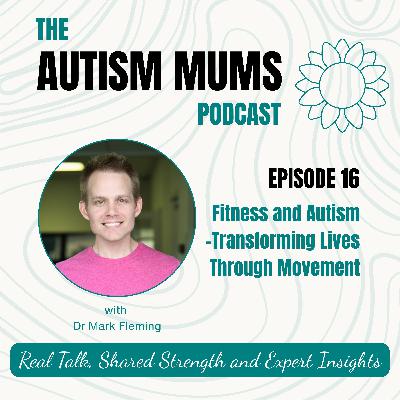Insights from Jamie Oliver's Dyslexia Revolution
Description
This week we are discussing Jamie Oliver's Channel four documentary Jamie's Dyslexia Revolution. We found this programme hugely impactful and we felt compelled to discuss the critical issues it raises about dyslexia, the shortcomings of our education system and how it affects neurodivergent children.
Key Takeaways
Dyslexia as a Brain Difference: Understanding that dyslexia is a brain difference rather than a lack of intelligence can be transformative. It shifts the narrative from feeling inadequate to recognising unique cognitive strengths and learning styles.
Impact of Early Screening: Early screening in schools can significantly change the trajectory for neurodivergent children. Identifying dyslexia early allows for tailored support, helping children feel understood and empowered rather than left behind.
Need for Teacher Training: The lack of adequate training for teachers on neurodivergence can hinder a child's educational experience. Proper training equips educators with the tools to recognise and support diverse learning needs, fostering a more inclusive classroom environment.
Importance of Advocacy: Advocacy plays a crucial role in driving change within the education system. By voicing concerns and pushing for better resources and support, parents can help create a more equitable environment for all children.
Empowering Children: Empowering children and celebrating their strengths is vital for their self-esteem. When children feel valued for who they are, they are more likely to thrive and develop a positive self-image.
Jamie's Dyslexia Revolution
Watch and share the documentary here
Let’s get the word out. Share it with friends, family – anyone who needs to see what’s really going on.
Tell the Secretary of State, Bridget Phillipson
Post on Twitter/X (@bphillipsonMP) or Instagram (@bridgetphillipsonmp) using #ComeOnBridget. Tell her what’s happening, what needs to change – and why kids can’t wait.
Write to your MP
Let them know you’re part of Jamie’s Dyslexia Revolution. Ask them to stand up in Parliament and speak out for change. Jamie has templates and tips here, but Jamie says your own story is the most powerful thing you can share.
Connect with The Autism Mums
https://theautismmums.com/
Follow us on Instagram https://www.instagram.com/theautismmums
Follow us on TikTok https://www.tiktok.com/@theautismmums
Follow us on Facebook https://www.facebook.com/theautismmums
Transcript
Episode 15 Insights from Jamie Oliver's Dyslexia Revolution
[00:00:00 ]
Hello and welcome to the Autism Mums podcast. I'm Victoria. And I'm Natalie. We are two sisters raising autistic children who know the joy, the challenges, and the everyday moments. This is a supportive space for honest conversations, practical tips, shared strength and expert advice.
Whether you are celebrating a win, surviving a meltdown, or just
trying to make it through the day, we are right here with you.
Join us as we share the ups, the downs, and everything in between parenting autistic children.
Today we are discussing Jamie Oliver's Channel four documentary Jamie's Dyslexia Revolution. We found this program hugely impactful and we felt compelled to discuss the critical issues it raises about dyslexia, the shortcomings of our education system, and how it affects neurodivergent [00:01:00 ] children.
Victoria Bennion: This morning I finished watching Jamie Oliver's
dyslexia revolution, and this was after Natalie, you told me that I
really needed to watch it when it came out, and I knew that you'd
seen it. And I can see why you said that it was really important. So we just thought we would chat round for anyone who hasn't seen it or even if you have seen it, some of the issues that were covered is for anyone who's worried right now that their child is being left behind.
Natalie Tealdi: It got me all riled up.
Victoria Bennion: Yeah, it did. I think it highlights again, what
is wrong with the school system, what's failing our children?
So. What is dyslexia? Yes, dyslexia is a brain difference. It's not a lack of intelligence, but unfortunately a lot of people with dyslexia can end up feeling like they're stupid or they're dumb.
This was something that the program highlighted because they don't learn in the same way as others.
Natalie Tealdi: You could see how emotional Jamie Oliver was when
he was just talking about what his school days were like, and you
think how much time has [00:02:00 ] passed and how successful he is.
Yet that still leaves such a mark.
Victoria Bennion: It's shocking that children of such a young at
age can believe that they're stupid. They just have a brain
difference. They're talented. They've got so much to offer, but that
isn't being celebrated and they're not being made to feel that. It's
highlighting to them because of the way of the education system, the
way of the teaching, that they can't access that.
I guess there's something wrong with you that you're not worthy, and that was also highlighted in the children that he spoke to, which is just so sad and so wrong.
Natalie Tealdi: There was that boy they were talking to, and they
were asking him how he felt about the future and he just said
hopeless.
Victoria Bennion: Awful. A child of that age should not be feeling
that their future is hopeless. There needs to be steps to change it.
I worked with a client, who had written a book on dyslexia last year,
and I know that there are moves to raise awareness and there was some really interesting statistics, which again, Jamie Oliver touched on
in the program. 50% of the [00:03:00 ] prison population were dyslexic.
Natalie Tealdi: That's correct. Yeah. That is huge, isn't it?
You just think if there was screening in schools at a young age, what impact that could have, like how much of that 50% would go in a different direction
Victoria Bennion: absolutely, and I know From the work that I've been
involved in that a very high percentage of entrepreneurs are also
dyslexic, which shows that there's something there that can be tapped
into. The book that my client had written was all about the Dyslexic
Edge, I know that he was involved with Richard Branson, who was
raising awareness of this, I very much feel.
Like you following the documentary that Jamie Oliver did, that if you could get it right at the primary school age for these children, it would make a difference to so many lives to society is these children have so much to offer.
Natalie Tealdi: I know. That's the thing. We shouldn't be casting
people aside 'cause they're not fitting into a box.
And that goes for all neurodivergent. Conditions.
Victoria Bennion: Yeah, and it's [00:04:00 ] a societal norm, I think our friend Carl would say, and it's just something that we've created, so we need to uncreate it. We need to do better for our children. Something that I found interesting as well about dyslexia is there's often a co-occurrence of another neurodevelopmental condition such as autism, A DHD and developmental language disorder.
Jamie Oliver is advocating for early screening and improved training for teachers on neurodiversity, because with dyslexia included, they believe that up to 25% of a class would be neurodivergent
Natalie Tealdi: and that's a massive chunk of a classroom,
Victoria Bennion: a massive chunk of a classroom who's not being
catered to, who has got needs that aren't being met and are being
failed.
Natalie Tealdi: And also it's not fair on the teachers, they
haven't been trained. So they have a classroom and 25% of them.
They dunno how to support.
Victoria Bennion: That's it. A hundred percent. It really shocked
me [00:05:00 ] when they talked about the amount of training that a teacher receives in Neurodivergence. So it was something ridiculous like four to five hours out of their whole three year training course.
Natalie Tealdi: If you think of how much we as parents have researched to be able to support our children, how many hours we've spent on courses and reading. We are living it, and they're teachers who are working in this environment and they don't have anywhere near enough knowledge.
Victoria Bennion: And there's a scene where Jamie Oliver is at the
house as a parliament and he's talking to mps and the woman comes up to him and she was a teacher and she acknowledged, having children in her class who. Would have not been having
their needs met. So it's great that he's raising awareness of that.
But that's a high number of children every year.
Natalie Tealdi: It is.
Victoria Bennion: I think we can talk a little bit about our own
experiences here. I know I've said before, I was very aware of one of
my children when he was in [00:06:00 ]
reception that a small group of them were

